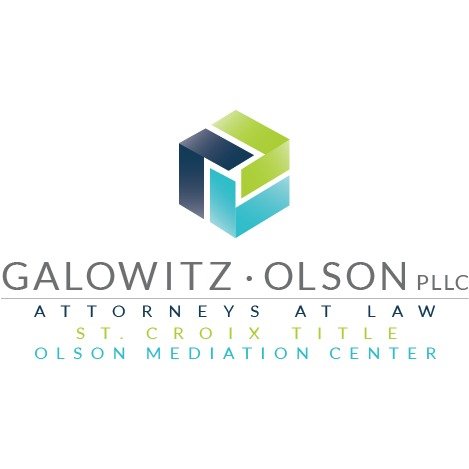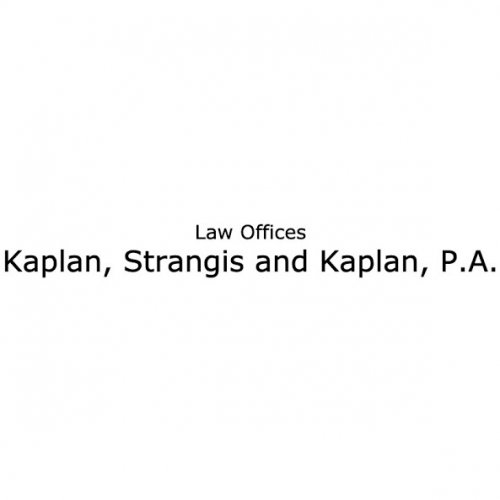Best Banking & Finance Lawyers in Minnesota
Share your needs with us, get contacted by law firms.
Free. Takes 2 min.
Or refine your search by selecting a city:
List of the best lawyers in Minnesota, United States
United States Banking & Finance Legal Articles
Browse our 1 legal article about Banking & Finance in United States written by expert lawyers.
- United States Student Loan Repayment 2026: Post-SAVE Options
- By 2026, most federal borrowers will be in long-term repayment with interest fully accruing again, and several "temporary" relief rules are set to expire. If legal or political attacks weaken SAVE, the original Income-Based Repayment (IBR) plan is likely the most durable, legally grounded income-driven repayment (IDR) option still available.... Read more →
About Banking & Finance Law in Minnesota, United States
Banking and finance law in Minnesota covers the regulations and legal framework that govern financial institutions, lenders, borrowers, and the general operation of banking activities within the state. This legal area addresses various issues such as loans, mortgages, banking operations, consumer protection, commercial transactions, and financial services. With national banks, regional banks, credit unions, and other financial entities operating in Minnesota, the state is guided by both federal regulations and its own specific set of laws to ensure fair, secure, and compliant financial transactions for individuals and businesses.
Why You May Need a Lawyer
There are several common situations where you may find yourself needing legal assistance from a banking and finance attorney in Minnesota. Some examples include:
- Disputes over loan terms, repayments, or defaults.
- Foreclosure or repossession of property secured by a loan.
- Understanding and negotiating commercial or real estate financing agreements.
- Dealing with issues of fraud, identity theft, or unauthorized transactions.
- Litigation regarding banking services, such as wrongful account closures or fee disputes.
- Compliance questions related to state or federal banking regulations.
- Restructuring debt or navigating bankruptcy proceedings involving financial institutions.
- Resolving issues with credit reports or errors that affect your borrowing ability.
- Seeking advice on new business ventures requiring financing or capital raises.
- Advising on consumer protection claims related to unfair lending practices or predatory lending.
Local Laws Overview
In Minnesota, banking and finance matters are regulated through a combination of state laws and federal statutes. The Minnesota Department of Commerce oversees the licensing and regulation of banks, credit unions, and other financial institutions operating within the state. Key areas within Minnesota's legal framework include:
- Consumer Protection: Minnesota has strong state laws that protect residents from unfair lending practices, predatory lending, and deceptive banking activities. The Minnesota Statutes, Chapter 58, focus on mortgage originators and servicers, adding protection for consumers seeking home financing.
- Interest Rate Limits: Usury laws in Minnesota set maximum interest rates lenders can charge individuals, with exceptions for certain types of loans or licensed lenders.
- Foreclosure Procedures: The state has specific requirements on how lenders must conduct foreclosures, including notification periods and redemption rights for homeowners.
- Banking Entity Regulation: The local Department of Commerce reviews and approves the formation, merger, or acquisition of banks and credit unions in Minnesota, and ensures compliance with state and federal regulations.
- Data Privacy: Minnesota law requires banks and financial institutions to implement reasonable safeguards to protect customer information in accordance with both state and federal standards.
- Commercial Transactions: Minnesota has adopted the Uniform Commercial Code (UCC) to govern secured transactions, negotiable instruments, and other commercial matters, with specific attention to Article 9 dealing with secured transactions.
Frequently Asked Questions
What is the difference between state and federally chartered banks in Minnesota?
State-chartered banks are regulated by the Minnesota Department of Commerce as well as certain federal agencies, whereas federally-chartered banks are primarily overseen by federal regulators such as the Office of the Comptroller of the Currency but still must comply with Minnesota laws affecting their operations in the state.
What steps should I take if I suspect banking fraud or unauthorized transactions on my account?
You should immediately report the issue to your financial institution, file a complaint with the Minnesota Department of Commerce or the Consumer Financial Protection Bureau, and consult with a legal professional to understand your rights and possible remedies.
How are foreclosures handled in Minnesota?
Most residential foreclosures in Minnesota are handled through a process called foreclosure by advertisement, which typically requires notification to the borrower and a redemption period for homeowners to reclaim their property after the sale.
Are online lenders and fintech companies regulated in Minnesota?
Yes, online lenders and fintech companies operating in Minnesota must comply with state licensing requirements and consumer protection laws, particularly if they extend credit or handle money for Minnesota residents.
What protections does Minnesota have against predatory lending?
Minnesota law prohibits certain harmful lending practices, such as excessive fees, high interest rates above legal limits, and deceptive loan terms. There are also enhanced disclosures required for high-cost loans and protections for borrowers in mortgage transactions.
What is the maximum interest rate a lender can charge in Minnesota?
Minnesota usury laws generally cap interest rates for consumer loans at 8 percent unless the lender has a special license, in which case the cap may be higher depending on the type of loan. Some types of loans, such as payday loans, have their own specific limits.
Can a bank close my account without notice in Minnesota?
Banks usually reserve the right to close accounts at their discretion, but they are typically required to provide reasonable notice to account holders unless fraud or illegal activity is suspected.
How does bankruptcy affect my debts to Minnesota banks?
Filing for bankruptcy may allow you to discharge certain debts owed to Minnesota banks or negotiate a repayment plan, but the impact depends on the chapter of bankruptcy filed and the nature of the debt.
Do I need a lawyer for a business loan or line of credit in Minnesota?
While not legally required, consulting with a lawyer is highly recommended to review and negotiate the terms, explain your obligations, and help identify any risks associated with the agreement.
What should I do if my bank is not responding to a complaint?
If your bank does not address your complaint effectively, you can escalate the matter by filing a complaint with the Minnesota Department of Commerce, the Consumer Financial Protection Bureau, or consulting with an attorney to explore legal options.
Additional Resources
Here are some reputable resources and organizations that can assist with banking and finance legal matters in Minnesota:
- Minnesota Department of Commerce - Regulates state-chartered banks, credit unions, lenders, and mortgage brokers.
- Minnesota Attorney General's Office - Provides consumer protection and assistance with banking and lending complaints.
- Consumer Financial Protection Bureau - Offers federal oversight and handles consumer complaints for financial services.
- Legal Aid of Minnesota - Provides free or low-cost legal assistance for eligible residents dealing with financial issues.
- Federal Deposit Insurance Corporation (FDIC) - Gives information on bank insurance and consumer rights regarding bank accounts.
- Local bar associations and professional legal networks - Offer lawyer referral services and resources for finding qualified banking and finance attorneys.
Next Steps
If you need legal assistance regarding banking and finance issues in Minnesota, start by documenting all relevant facts, correspondence, and financial documents related to your situation. Consider contacting a qualified banking and finance attorney who is familiar with Minnesota laws for an initial consultation. You can seek referrals from local bar associations, legal aid organizations, or trusted contacts. Acting promptly ensures you understand your rights, meet any legal deadlines, and can work toward a successful resolution. Remember that banking and finance law can be complex, and professional guidance is invaluable to protect your interests and ensure compliance with all applicable laws.
Lawzana helps you find the best lawyers and law firms in Minnesota through a curated and pre-screened list of qualified legal professionals. Our platform offers rankings and detailed profiles of attorneys and law firms, allowing you to compare based on practice areas, including Banking & Finance, experience, and client feedback.
Each profile includes a description of the firm's areas of practice, client reviews, team members and partners, year of establishment, spoken languages, office locations, contact information, social media presence, and any published articles or resources. Most firms on our platform speak English and are experienced in both local and international legal matters.
Get a quote from top-rated law firms in Minnesota, United States — quickly, securely, and without unnecessary hassle.
Disclaimer:
The information provided on this page is for general informational purposes only and does not constitute legal advice. While we strive to ensure the accuracy and relevance of the content, legal information may change over time, and interpretations of the law can vary. You should always consult with a qualified legal professional for advice specific to your situation.
We disclaim all liability for actions taken or not taken based on the content of this page. If you believe any information is incorrect or outdated, please contact us, and we will review and update it where appropriate.
Browse banking & finance law firms by service in Minnesota, United States
Minnesota, United States Attorneys in related practice areas.
Browse banking & finance law firms by city in Minnesota
Refine your search by selecting a city.









